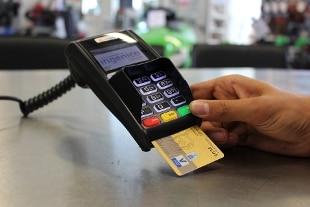Share
25 September 2020 The government continues to push the cashless plan and aims to make digital spending easier, lightening the costs for merchants: among the hypotheses that it would be working on, check that of zeroing the commissions for micropayments up to 5 euros, with the desire also to go up to the threshold of 25.
In a meeting with the operators, the executive then initiated a decisive pressing not only for a drop in commissions but also adding the request to participate in the cashback initiative, with additional amounts.
A hypothesis that seems to recall the old car scrapping, for which a pre-established 'discount' by the retailer had to be added to the public incentive.
This is a way to 'give back' to the system even the highest earnings linked to the greater use of cards.
The road to making Italy a more modern country also passes from here, is the conviction of the executive and in particular of the premier who wants to align with Europe where cards and ATMs are much more widespread.
And the hypothesis of reducing the costs borne by merchants would be one of the tools to ensure the success of the 'cashback' operation.
And that on the front of the citizens, as anticipated by the premier himself, should revolve around the 3,000 euro super-prize.
A 'treasure' to which the first 100 thousand citizens who will use the credit card the most will be able to access: for this mechanism the number of transactions will count and not the figure, so five coffees - it was explained - will be equivalent to five luxury bags .
An incentive that will complement the more traditional 'cashback' and that will allow those who choose digital payments to obtain a maximum refund of 300 euros.
The cashback and super-cashback (the new name of the Befana bonus) should start on December 1st but to become operational they need to be put in black and white with the implementing decrees of the Treasury.
There are currently one billion seven hundred and fifty million available for 2021, just over half of the 3 billion originally allocated with last year's maneuver and then diverted to finance anti Covid measures.
Obviously, the fund can always be further enhanced on the occasion of the next budget law.
Instead, what will automatically start from January 1st is the receipt lottery: this too has been postponed (it should have started in July) due to the Coronavirus, and in fact it is a free prize competition, connected to the electronic receipt.
In total there are 50 million euros available and the richest pot is the one for "zero cash" payments: you can win up to 5 million and in this case the operator will also be awarded (up to 1 million EUR);
but even those who use cash will be able to hope for luck and collect up to 1 million euros.
In addition to the most substantial loot, monthly and weekly prizes ranging from 5 thousand to 100 thousand euros are also up for grabs.
Just spend one euro to get a virtual ticket and participate in the draw, after having asked the shopkeeper to match his "lottery code", that is the alphanumeric code, to the receipt - you can read on the ad hoc site developed by the government - which is obtained by accessing the public area of the "Lottery Portal".
Another piece of the cashless plan, the new ceilings set for cash payments: from 1 July the threshold has dropped from 3 to 2 thousand euros and in 2022 it is destined to decrease again, reaching one thousand euros and thus returning to the levels established with the Save dl Italy in 2011. Also on July 1st, the obligation for professionals to accept payments by credit card was started.

